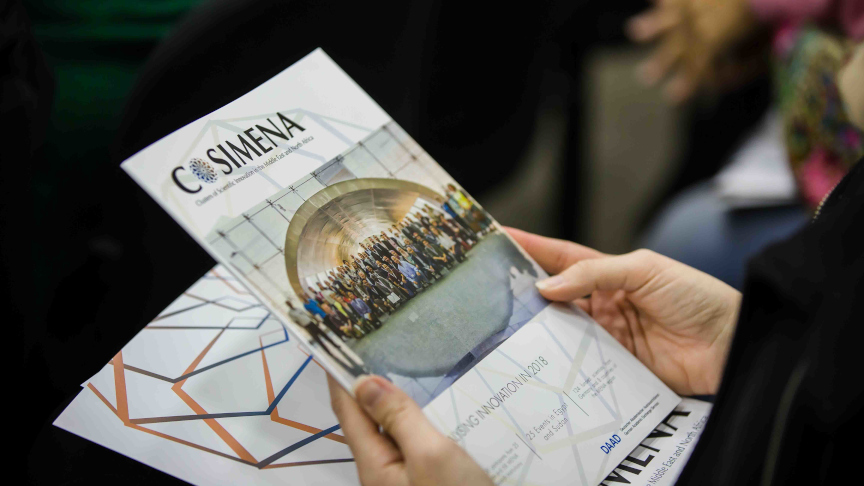Health Measures in Germany and the MENA Region during the COVID-19 Pandemic

Within the scope of COSIMENA -Cluster of Scientific Innovation in the Middle East and North Africa- the event intended to provide an insightful analysis of the different approaches of medical systems in Germany and the MENA Region in dealing with COVID-19. Different experts were invited to share their knowledge on a variety of topics: Studies on the mental health consequences of the pandemic, best-practice examples from the health measures from Morocco and Jordan and an analysis of the evolution of the research field from an Egyptian perspective were presented. A time for open questions and answers examining similarities and differences among the aforementioned cases followed. As a result, the public lecture offered the opportunity for the attendees to reflect on major issues deriving from the current global pandemic through a perceptive comparison between different countries.
“The current global pandemic has turned the world upside down;” Ms. Isabell Mering, director of the DAAD regional Office Cairo, stated during her opening remarks, “all countries around the globe are currently confronted with the urgent necessity to find health policies to face it”. The first presentation therefore focused on the impact of COVID-19 on mental health to understand some major problems emerging during this challenging time of transformation. Prof. Dr. Hanna Christiansen, Child and Youth Psychotherapist, Psychologist and Supervisor at the University of Marburg presented the articulated set of consequences on mental health of the global pandemic. Specifically, she clarified how the COVID-19 pandemic represents an unprecedented source of stress for people at a multidimensional level. After Dr. Christiansen’s explanation of the mental health risks deriving from the global pandemic and the available strategies to cope with it, Prof. Dr. El-Azami El-Idrissi Mohamed, an Academic Researcher at the Faculty of Medicine and Pharmacy of Fez , took the floor. He proceeded the public lecture with a presentation on “The impact of professional arena and closed communities on the evolution of the COVID-19 outbreak in an early containment” focused on the country of Morocco. He first explained how the implementation of early measures had a positive impact on the evolution of the outbreak and helped Morocco to avoid a major crisis. Similarly, Prof. Dr. Walid Al-Zyoud, PhD, Vice Dean of the School of Applied Medical Sciences and Head of Biomedical Engineering Department at the German Jordanian University (GJU) took the containment measures in Jordan under scrutiny. He then offered a detailed explanation of Coronavirus, the available testing options and concluded with the invention of a new testing method invented by him and a research partner “the RNA toolkit” which is being produced and marketed in the coming weeks in his presentation “Invention step in the age of Coronavirus”. The lecture then moved to analyse the consequences of the global pandemic in the research field from the perspective of Egypt. Prof. Dr. Abdel Meguid Kassem, Chief of the Gastrointestinal Endoscopy Department at the Faculty of Medicine at the Cairo University and member of the Advisory Committee of the pandemic in Egypt emphasized the need to continue exchanging information in the academic field for an effective response to the global pandemic. He equally highlighted the challenges which researchers are facing in this unique global crisis such as the pressure by decision makers and the public, the limited information at disposal, the lack of coordination and prioritization due to unpreparedness. Furthermore, he elaborated the research fields in which more research work is needed.
Overall, the public lecture shed the light on major issues in the health sector deriving from the Coronavirus pandemic from different perspectives. It therefore stimulated reflections on the nature of the crisis, its consequences and the possible measureson a regional and cross-regional basis while emphasizing the necessity to continue sharing information across countries in a spirit of solidarity and exchange.
Author: Veronica Merlo

















